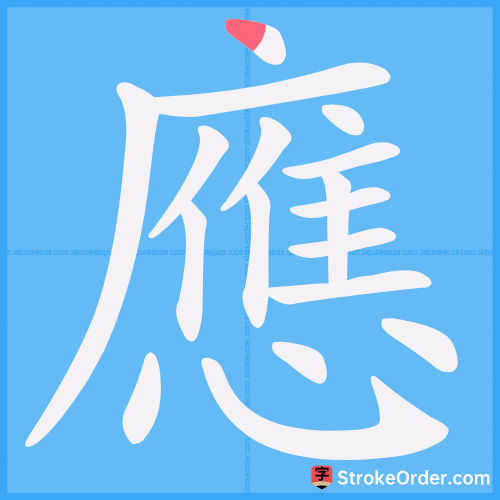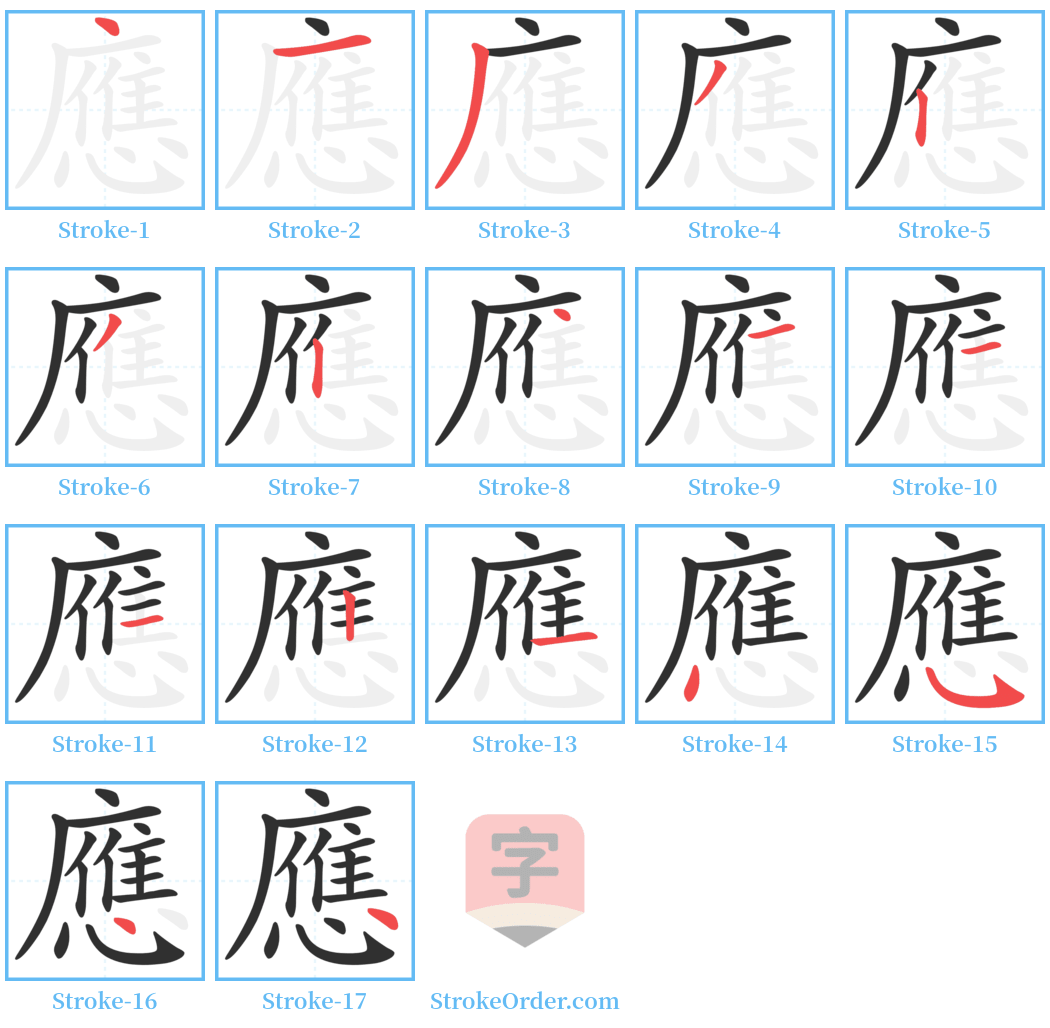應 Stroke Order
Animated Stroke Order of 應

Stroke Order Diagrams for 應

Step-by-Step Handwriting Guide for 應

Learn to Write Chinese Characters with Video Tutorials
Watch the video of writing the Chinese character "應", learn the correct stroke order (笔顺) of the character "應", and master the standard way of writing the character "應".
Free Printable Handwriting Practice with Stroke Order: 應
Printable Writing Practice Worksheet of "應" in Portrait Orientation (Tian Zi Ge)

Printable Writing Practice Worksheet of "應" in Landscape Orientation (Tian Zi Ge)

Information of 應
Pinyin
yīng、 yìng
Radical
心
Strokes
17 strokes
Usage
★★★
Definition
ought, (surname) / to answer / to respond
Definition of 「應」:
1. To be appropriate or to be the case.
- Example: "When King Wen has worked hard, I should receive it." (from the Book of Songs, Zhou Song, Lai)
2. To be or to think it is; indicates speculation.
- Example: "Autumn should have withered me away, yet I keep my waistline." (from Xu Ling's poem)
3. To respond.
- Example: "Bosheng smiled but did not respond." (from the Book of Later Han)
4. To permit or make a promise.
- Example: "If I respond to others, what can you expect?" (from the Collection of Music)
5. To agree or affirm.
- Example: "All the counties and districts suffering under Qin officials killed their long officials to support Chen She." (from Historical Records)
6. To deal with or respond appropriately.
- Example: "The pivot acquires its ring to meet the infinite." (from Zhuangzi)
7. To verify.
- Example: "These four lines of rumor have all been confirmed." (from Water Margin)
8. To be suitable.
- Example: "To have the heart and hands act in harmony." (from the Book of Changes)
9. To accept.
- Example: "To accept the gifts from the Duke and not perish." (from the Book of Guanzi)
10. A surname, as in the Ming dynasty's Ying Yuanzheng.